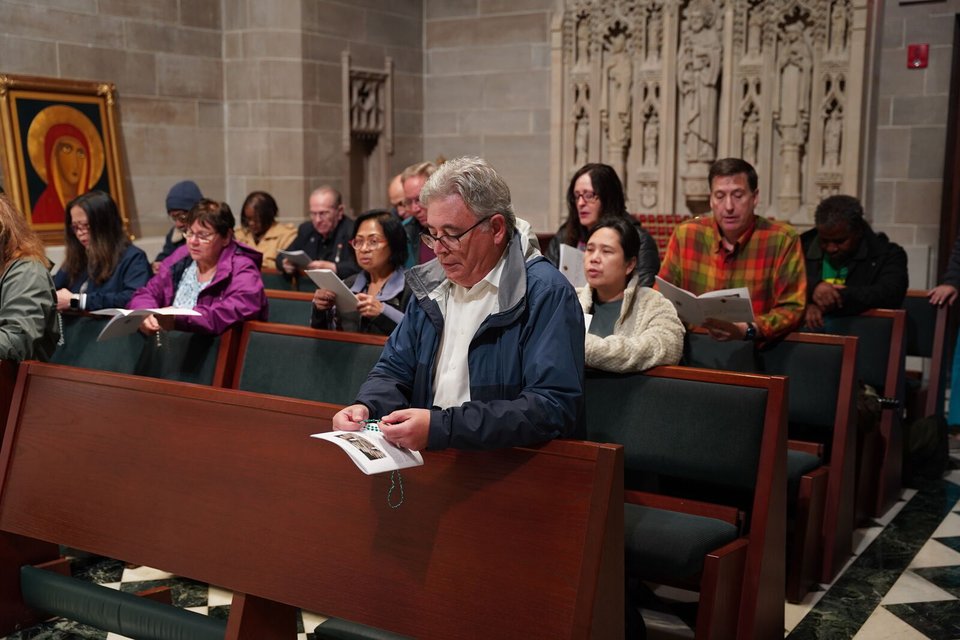Reproductive Health Act would eliminate informed consent, safety requirements for clinics, legalize partial-birth abortion
LANSING — The Michigan Catholic Conference is calling on legislators in Michigan to oppose an "appalling" package of bills that would scrap widely supported regulations on the abortion industry in the state.
The so-called "Reproductive Health Act" (RHA), which on Sept. 20 passed the Democratic-controlled House Health Policy Committee in the state House of Representatives, would legalize third trimester partial-birth abortions, end state-required inspections and licensure standards for abortion clinics, and overturn informed-consent laws that require clinics to warn women of the dangers of the procedure.
Rebecca Mastee, policy advocate for the Michigan Catholic Conference, said the bills represent "the most extreme policies passed in the recent history of the Legislature" because of their "blatant prioritization of the abortion industry over women's health and safety."
The legislation is being pushed less than a year after Michigan voters passed the controversial Proposal 3 in last fall's election, which eliminated virtually all limits to abortion in the state by amending Michigan's constitution.
At the time, proponents of the proposal argued the measure would simply return Michigan to a legal landscape similar to Roe v. Wade, an argument the Michigan Catholic Conference, Right to Life Michigan and others rejected as misleadingly false.
The Reproductive Health Act is an extreme example of what happens when abortion is allowed to become an unlimited and unchallengeable right, Mastee said.
“The majority of Michiganders support and expect longstanding regulations and limitations on abortion to remain in place, limits that were legal under Roe v. Wade," Mastee said. "All human life, including the life of a woman seeking an abortion, has inherent value and is worthy of legal protection. We call on members of the Michigan Legislature to turn to their consciences and oppose the Reproductive Health Act.”
The Michigan Catholic Conference appealed to lawmakers to conduct a "conscience check" and reject the extreme bills, which would place women in grave harm.
Among other effects, the bills would remove several common-sense laws designed to protect women who choose to seek an abortion, including reporting requirements for abortion clinics when complications occur during an abortion; screening requirements designed to protect women from being coerced into an abortion against their will; and requirements to dispose of fetal remains humanely and safely, the Michigan Catholic Conference said.
The legislation would also remove "Right to Know" policies that require clinics to inform women of the risks associated with the procedure at least 24 hours before an abortion takes place.
Mastee argued the legislation is designed only to protect the abortion industry, placing ideology above all other considerations.
"The Reproductive Health Act would advance an unregulated abortion environment in Michigan, prioritizing the financial, political and business interests of the abortion industry over the health and safety of women in this state,” Mastee said.
In a March 2023 survey by the Marketing Resource Group, commissioned by the Michigan Catholic Conference, 90 percent of Michigan residents said they support licensing and inspections for abortion clinics, and 63 percent support a "Right to Know" period before an abortion takes place.
On Sept. 14, two board-certified OB-GYNs testified before the House Health Policy Committee about the dangers of the proposal.
Dr. Catherine Stark warned committee members that the legislation would place women seeking an abortion in danger by limiting the information available to them, including information about which abortion clinics have high rates of complications.
“If you were the patient, or your daughter or your sister, wouldn’t you want to know which abortion clinics have a high rate of complications, or which clinic has had their license revoked due to dangerous practices?” Dr. Stark said in her testimony. “How would you know without reporting, licensing and inspections?”
The Michigan Catholic Conference issued an "action alert" through its Catholic Advocacy Network urging concerned citizens to contact their lawmakers to oppose the Reproductive Health Act.
Both the Michigan House and Senate are controlled by Democrats, and Michigan Gov. Gretchen Whitmer has signaled her support for the legislation.
Copy Permalink
Pro-life Proposal 3 Faithful citizenship











